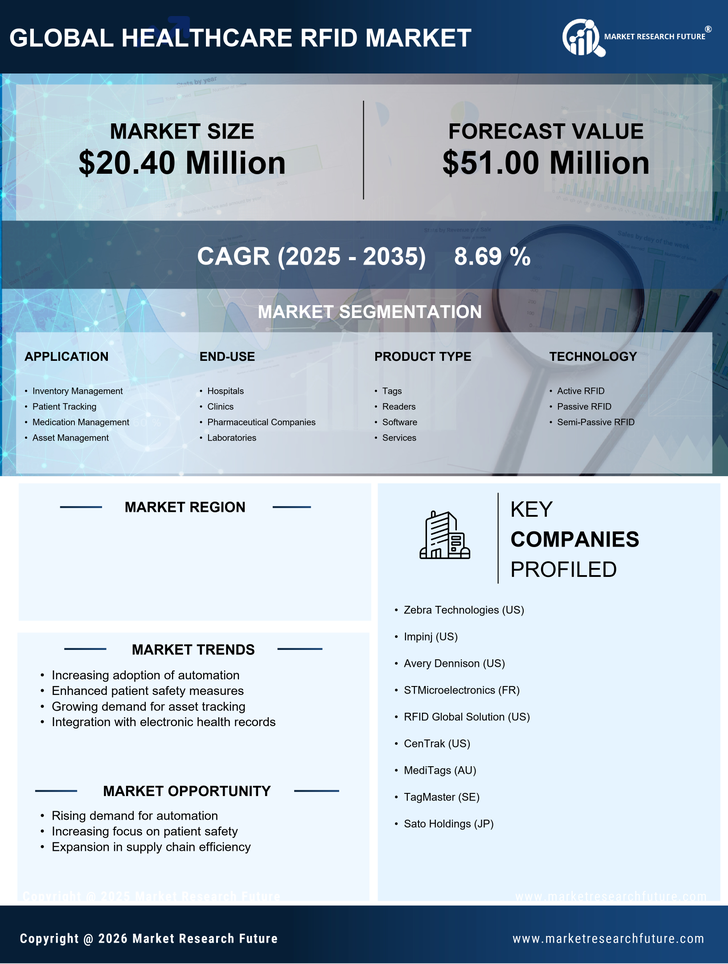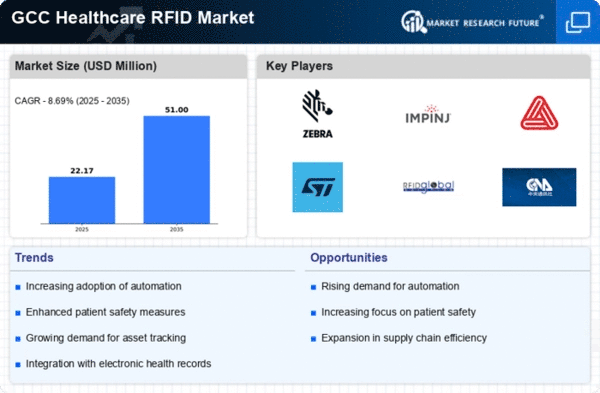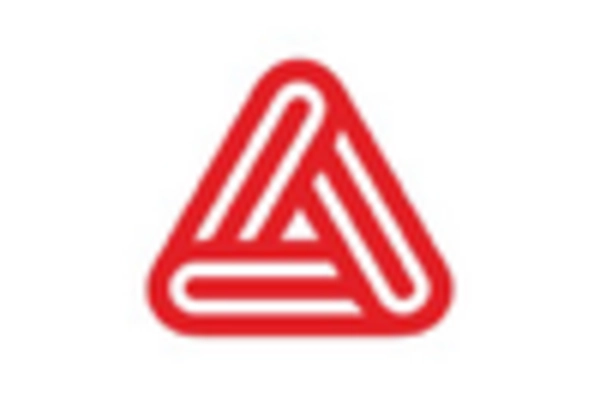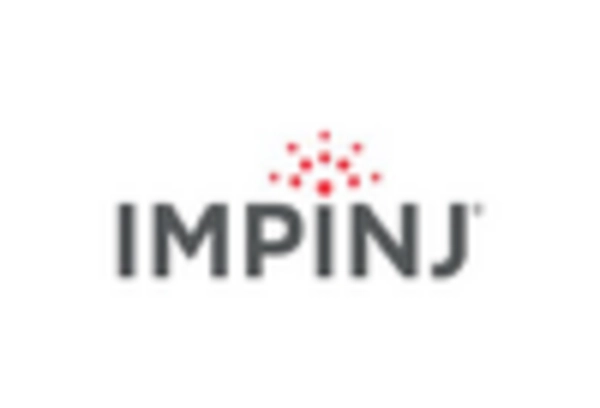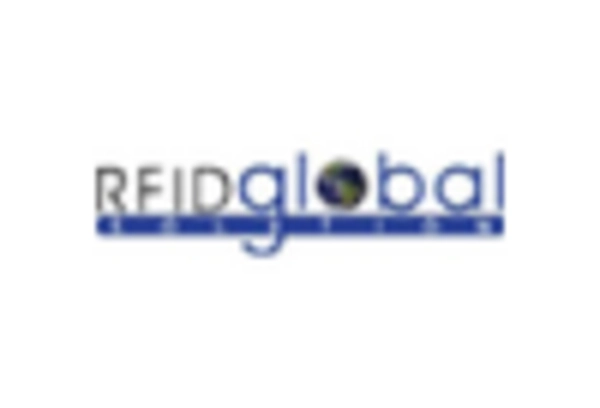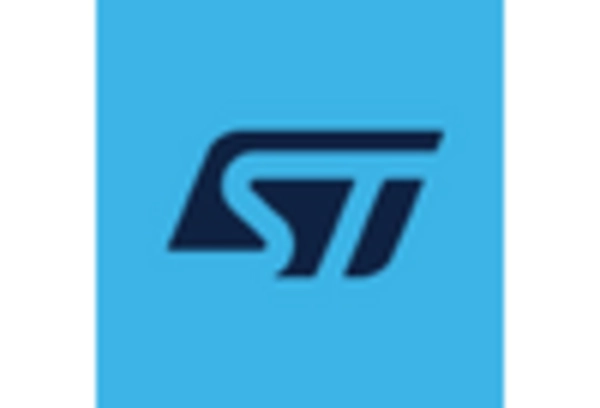Emphasis on Data Security and Privacy
The healthcare RFID market is increasingly shaped by the emphasis on data security and privacy in healthcare settings. As RFID technology becomes more prevalent, concerns regarding the protection of sensitive patient information are rising. Healthcare providers in the GCC are prioritizing the implementation of secure RFID systems that comply with data protection regulations. This focus on security is likely to drive innovation within the healthcare rfid market, as companies develop solutions that not only enhance operational efficiency but also safeguard patient data. The integration of robust security measures is expected to be a key driver for the adoption of RFID technology in healthcare.
Growing Focus on Asset Tracking and Management
The healthcare rfid market is significantly influenced by the growing focus on asset tracking and management within healthcare facilities. Hospitals in the GCC are increasingly recognizing the importance of tracking medical equipment and devices to minimize loss and enhance utilization. RFID technology provides a robust solution for real-time asset tracking, which can lead to improved operational efficiency. Reports indicate that healthcare organizations that implement RFID systems can achieve asset utilization rates of over 90%. This trend is likely to drive the healthcare rfid market as facilities seek to optimize their resources and reduce operational disruptions.
Rising Demand for Efficient Inventory Management
The healthcare rfid market is experiencing a notable surge in demand for efficient inventory management solutions. Hospitals and clinics in the GCC are increasingly adopting RFID technology to streamline their supply chain processes. This technology enables real-time tracking of medical supplies, reducing waste and ensuring that critical items are always available. According to recent estimates, the implementation of RFID systems can lead to a reduction in inventory costs by up to 30%. As healthcare facilities strive to enhance operational efficiency, the healthcare rfid market is poised for growth, driven by the need for accurate inventory management and reduced operational costs.
Increased Investment in Healthcare Infrastructure
The healthcare RFID market is benefiting from increased investment in healthcare infrastructure across the GCC. Governments are allocating substantial budgets to enhance healthcare facilities, which includes the integration of advanced technologies like RFID. This investment is aimed at improving patient care and operational efficiency. For example, the GCC region has seen a rise in the establishment of smart hospitals that utilize RFID systems for various applications, including patient tracking and inventory management. As these investments continue, the healthcare rfid market is expected to grow, driven by the demand for modernized healthcare solutions.
Regulatory Support for Advanced Healthcare Solutions
Regulatory bodies in the GCC are increasingly supporting the adoption of advanced healthcare solutions, including RFID technology. This support is evident in the formulation of policies aimed at enhancing patient safety and operational efficiency. The healthcare rfid market benefits from these initiatives, as they encourage healthcare providers to invest in innovative technologies. For instance, the introduction of standards for RFID usage in hospitals is likely to foster greater trust in these systems. As a result, the healthcare rfid market is expected to expand, with more facilities integrating RFID solutions to comply with regulatory requirements and improve service delivery.
